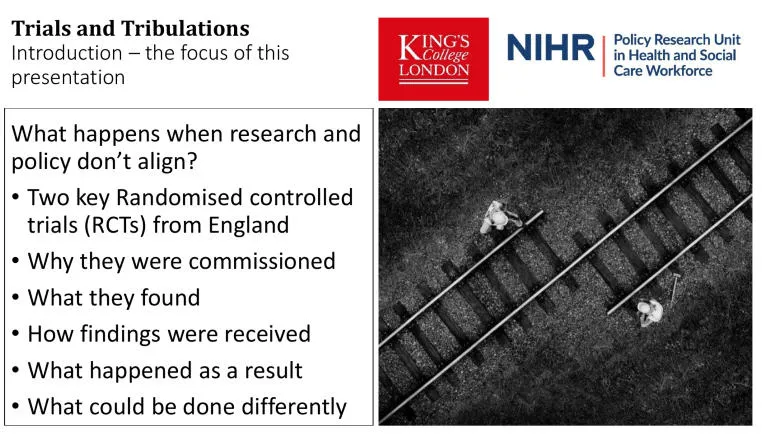02 November 2021
What happens when research and policy don't align?
John Woolham delivered a keynote presentation to the Social Care Ireland Annual Conference.

John Woolham is Senior Research Fellow at the NIHR Policy Research Unit in Health and Social Care Workforce at King's. He gave a keynote speech on 12 October 2021 to the Social Care Ireland Annual (Virtual) Conference organised by Social Care Ireland.
His presentation ‘Trials and tribulations: the policy and practice impact of two major randomised controlled trials in England’ offered a detailed look at two well-designed randomised controlled trials (RCTs) in England. The first was the Individual Budgets Support Network Evaluation (IBSEN) which looked at the impact and outcomes of individual budgets – forerunners of direct payments and personal budgets universally used now in English adult social care. The second was the Whole System Demonstrator project, which was designed to find out if telecare and telehealth led to better outcomes for recipients. Telecare is widely seen as having an important role in addressing the pressure of providing services for a rapidly ageing population at a time of unprecedented cuts to social care resources in England.
The presentation described why these trials were commissioned, what they found, and what impact they had on policy and practice. It argued that relationships between research, policy and practice can be highly problematic but that it is important to nurture these relationships if policy and practice is to be informed or even based on, research evidence, and suggested ways in which key stakeholders – governments and policy makers, local authorities, researchers and social work/social care professionals, could work to develop and sustain more effective working relationships. The presentation led to a short and interesting discussion with some of the conference delegates. The slides are available here.

